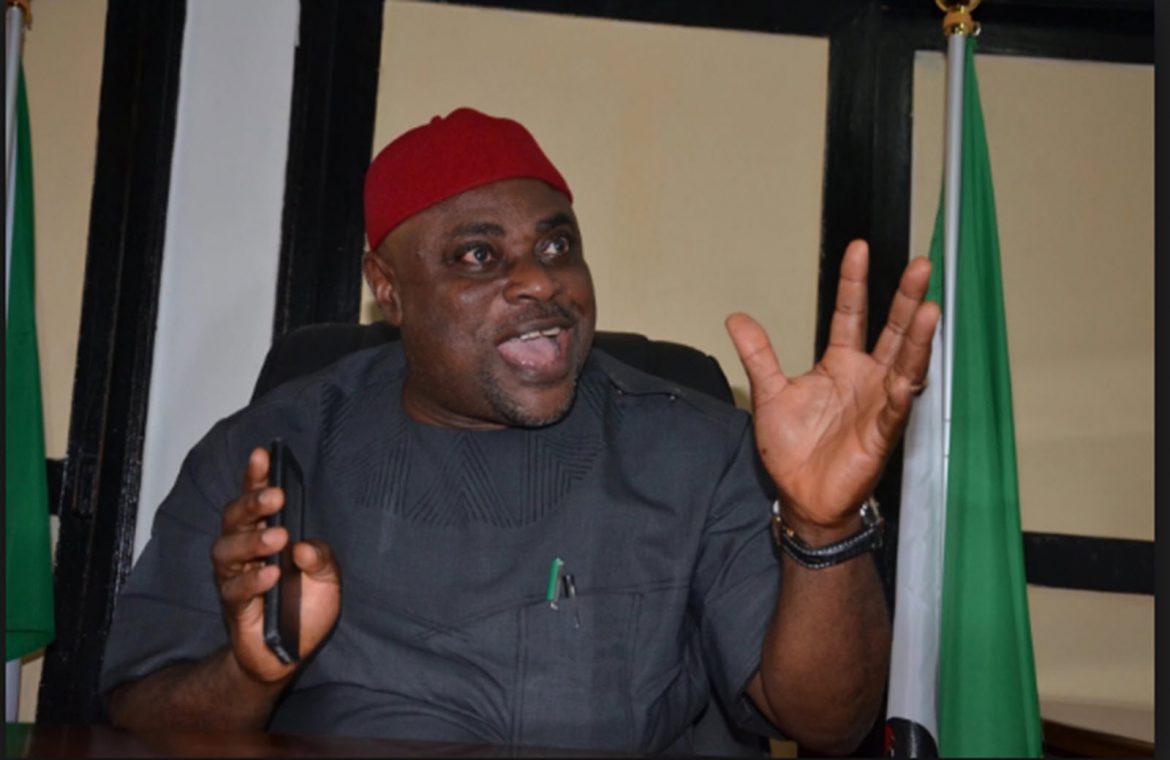Buhari-led Federal Government’s commitment to the agenda of taking 100
million Nigerians out of poverty in the next ten years.
Agba, who spoke at an audience in his office in Abuja with a team of the
EU, led by Minister Counsellor and Head of Co-operation of EU Delegation
to Nigeria & ECOWAS, Mr Kurt Cornelis, said one of the major thrusts of
the administration’s priorities, in its second term, was the strategic
and incremental liberation, over time, of that number of Nigerians
caught in the poverty trap.
Responding to comments by Cornelis on the imperative of robust
development partnerships in the context of the administration’s
priorities and how the EU could work to align them with the provisions
of its funds for the 2021-2027 budgetary cycle, Agba said the priorities
remained the same as those articulated by the President during his 2015
electioneering and in his first term.
According to him, “The priorities remain the same. When the President
campaigned for his first term in office, there were three major areas of
focus. One was to grow the economy; the other was to enhance security;
and, the third was the fight against corruption. These still remain the
broad focus of government.
“So within these, there are other priority areas of focus. One of the
major thrusts of all of these is how we would be able to take about 100
million people out of poverty in the next ten years. Therefore, it
means that in whatever we do, it should be something of scale that
should be able to create employments, not employments for hundreds but
we are talking of employments for millions of people.
“That, certainly, will be able to generate activities in the economy and
help to grow our Gross Domestic Product (GDP). So those are the areas
of focus for us in the next four years.”
Agba said the Buhari administration remained committed to the
achievement of solid infrastructure development and economic growth,
pointing out that a clear demonstration of that commitment was the
launch of the Economic Recovery and Growth Plan (ERGP), which was
functional in the exit of Nigeria from recession in 2017.
Announcing that the ERGP would come to an end by December 2020, the same
time that the Vision 2020 would end, the Minister said necessary
machinery had been set in motion to start the next successor plan.
“We are looking forward to starting the next successor plan, which we
think should be from 2021 to 2050. So, whatever support that is that we
can get from the EU, may be technological support, how we can deploy
technology in driving the process, would be very much welcome. For me,
it is not just the issue of money, but the issue of expertise,” he
stated.
The EU team leader had, among other agendas, said that the United
Nations and the EU were working on an initiative that would be launched
next month at the United Nations General Assembly, called Integrated
National Financial Framework (INFF) to bolster the funding of
Sustainable Development Goals (SDGs).
According to him, “Part of that (initiative) is to make an assessment of
development financing in countries, and Nigeria has been pre-selected as
a possible pilot country; and, the UN is reaching out to the President’s
office and to the Minister of Finance to ensure that Nigeria is keen and
is accepting to be a pilot country in this exercise.
“For the EU, it is something that we very much support. I am sure that
the UN Resident Coordinator is going to have meetings too with His
Excellency and Minister of Finance; and, hopefully, they can come to a
great agreement.”
Cornelis, however, said that a big challenge to the EU for next year was
the new budgetary cycle that would cover the years 2021 to 2027 and how
to ensure that development partnership proposals would be in tandem with
Nigeria’s policies and strategies.



